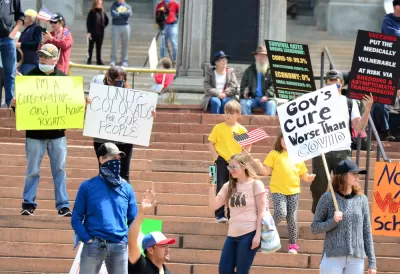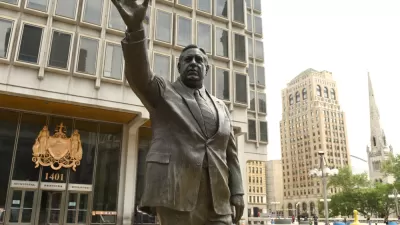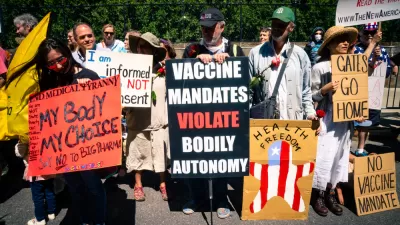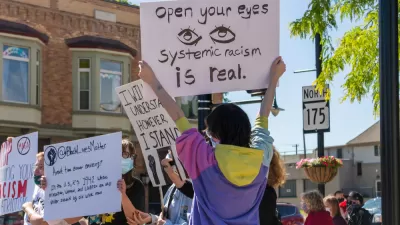Covid-19 deaths track closely to the discriminatory boundaries set by housing lenders, sponsored by the government, in the 20th century.

Jeremy Németh and Sarah Rowan, both from the University of Colorado Denver, connects the dots between the discriminatory housing practices of the 20th century and the public health risks of the 21st century.
After explaining some of the well documented connections between place and public health, Németh and Rowan focus on the public health risks, including Covid-19 fatalities, in Valverde, a neighborhood on the West Side of Denver redlined by the Home Owner’s Loan Corporation in the 1930s.
Mapping scores on the CDC’s Social Vulnerability Index in Denver reveals how these clear patterns of disadvantage [created by the legacy of redlining] coincide with COVID-19 hospitalization rates," according to the article.
The article also shifts focus to solutions, with Denver as the continuing model, and recommendations for additional measures in cities all over the country.
In the short term, critical efforts can include widespread free testing events in vulnerable neighborhoods, along with distribution of free hand sanitizer, cleaning supplies and masks, which also helps ensure that at-risk residents do not have to travel on crowded public transportation to shop for these items. This is also an opportunity to link uninsured residents to health care coverage and primary care providers.
Other measures, like the location of community health centers in at-risk neighborhoods, are also discussed.

Maui's Vacation Rental Debate Turns Ugly
Verbal attacks, misinformation campaigns and fistfights plague a high-stakes debate to convert thousands of vacation rentals into long-term housing.

Planetizen Federal Action Tracker
A weekly monitor of how Trump’s orders and actions are impacting planners and planning in America.

San Francisco Suspends Traffic Calming Amidst Record Deaths
Citing “a challenging fiscal landscape,” the city will cease the program on the heels of 42 traffic deaths, including 24 pedestrians.

Defunct Pittsburgh Power Plant to Become Residential Tower
A decommissioned steam heat plant will be redeveloped into almost 100 affordable housing units.

Trump Prompts Restructuring of Transportation Research Board in “Unprecedented Overreach”
The TRB has eliminated more than half of its committees including those focused on climate, equity, and cities.

Amtrak Rolls Out New Orleans to Alabama “Mardi Gras” Train
The new service will operate morning and evening departures between Mobile and New Orleans.
Urban Design for Planners 1: Software Tools
This six-course series explores essential urban design concepts using open source software and equips planners with the tools they need to participate fully in the urban design process.
Planning for Universal Design
Learn the tools for implementing Universal Design in planning regulations.
Heyer Gruel & Associates PA
JM Goldson LLC
Custer County Colorado
City of Camden Redevelopment Agency
City of Astoria
Transportation Research & Education Center (TREC) at Portland State University
Jefferson Parish Government
Camden Redevelopment Agency
City of Claremont





























